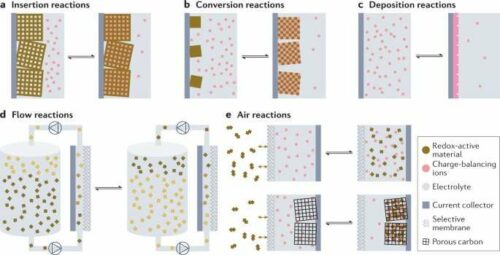Researchers have developed aqueous lithium-ion batteries that can combine better safety and higher voltage.

Lithium-ion batteries have a hold on around 80% of the rechargeable battery market globally. The very reason for this is that they offer better battery capacity, efficiency and longevity than others in the current marketplace. However, they are still quite expensive and can catch fire or explode in extreme conditions.
Researchers at the University of Houston contend that the gold-standard lithium-ion battery is about to get some competition. They are betting on humble aqueous batteries—with water-based electrolytes—generally regarded as safe, reliable and affordable. “The idea is to develop advanced aqueous batteries that can combine better safety and higher voltage,” said Yan Yao, Hugh Roy and Lillie Cranz Cullen Distinguished Professor of Electrical and Computer Engineering and principal investigator at the Texas Center for Superconductivity at the University of Houston.
Commercial aqueous batteries that exist today lack the energy density and lasting power needed to be seriously considered for large-scale application such as transportation and grid storage. Researchers plan to widen the window of electrochemical stability, allowing battery chemistry to work across wider voltage ranges and produce more energy, leading to new opportunities.
“How we integrate the different components will have a profound impact in this field,” said Yanliang “Leonard” Liang, research assistant professor of electrical and computer engineering. “We must mix and match and try new combinations. Sometimes it will result in improvement in one area but compromises in another. We have to be realistic and keep trying to make it better and better. One day, you will have an aqueous battery that has the same voltage as the lithium-ion battery, but it will be safer because it is water-based,” he said.
Researchers will have to continue pursuing improvements to turn the hope into the reality of an advanced commercially viable aqueous battery. There is excellent incentive to spur researchers on—not only will the aqueous batteries of the future offer more energy and safety, but they will also make battery disposal easier on the environment because of the materials used.





